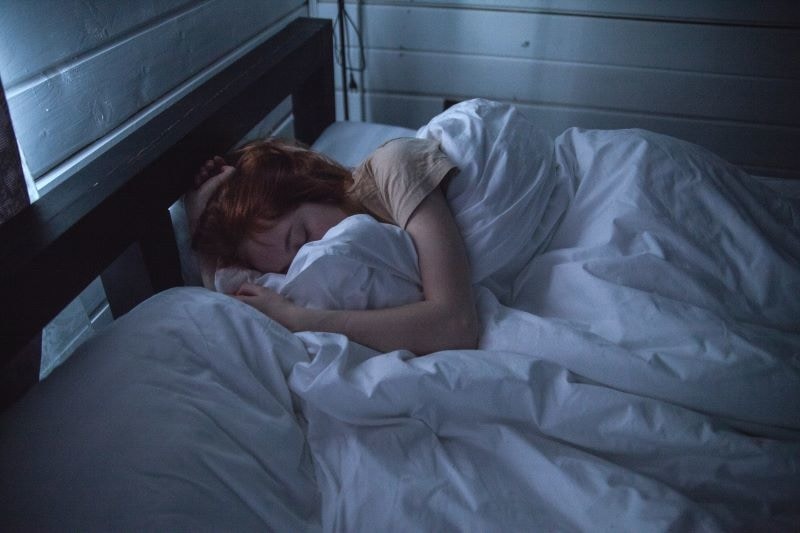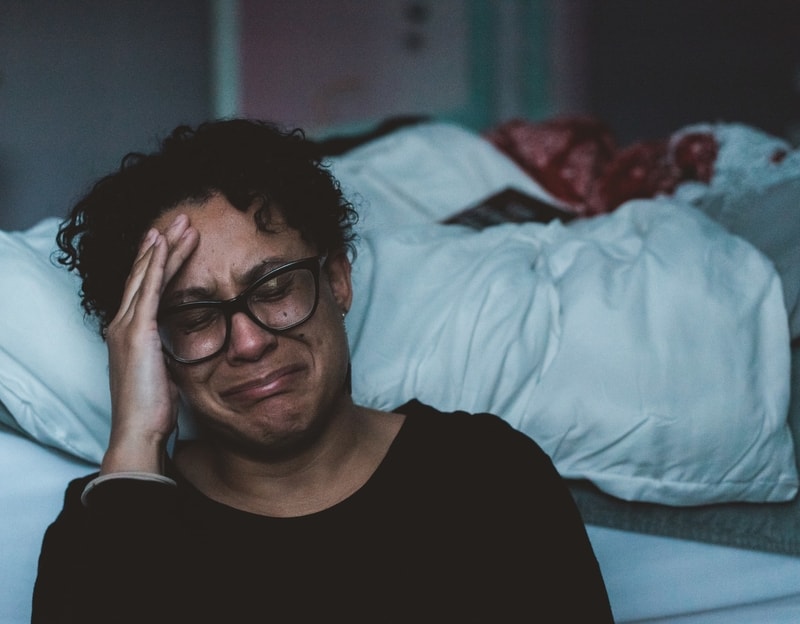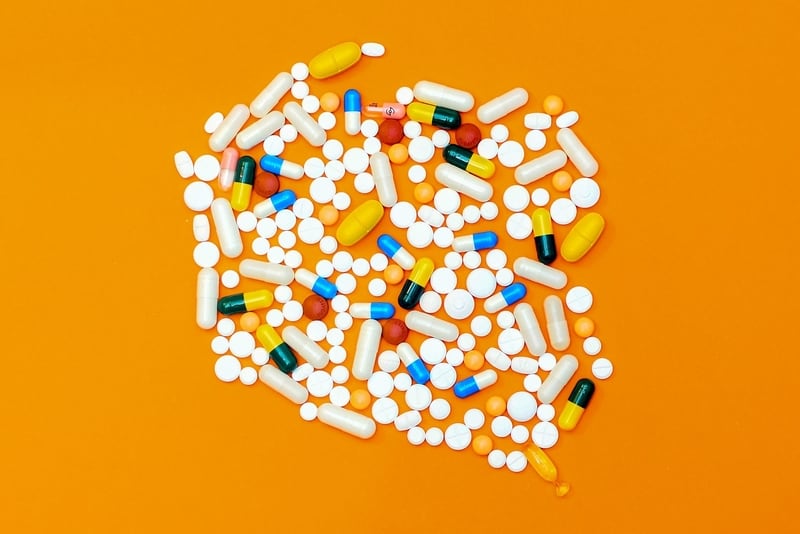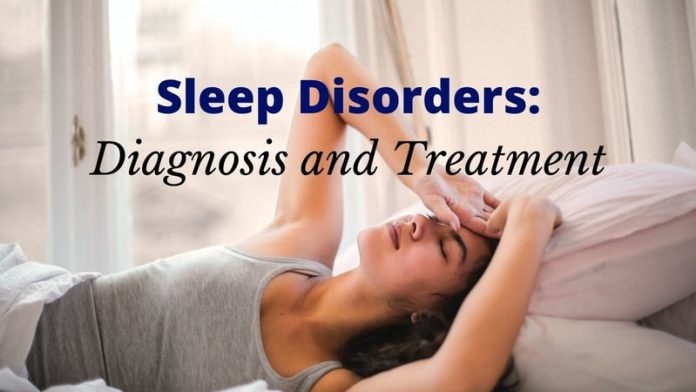Sleep is the same basic physiological requirement as diet. Everyone needs sleep. It is reasonable to say that people should not have insomnia, but in fact “sleep disorder” is one of the most common complaints of outpatients, but the so-called “insomnia” is just a narrative description of “symptoms”, not a “diagnosis.” Most “insomnias” are secondary, that is, they are caused by various other physical or mental diseases. The rate of “primary insomnia” with no cause is only below 10%.
This article will be discussed from five different levels: (1) normal sleep phenomena (2) types of sleep disorders (3) causes of sleep disorders (4) effects of sleep disorders (5) treatment of sleep disorders, etc.
Normal sleep phenomenon
1. Sleep-Wake Rhythm
The normal internal “biological clock” cycle of human beings is about 25 hours. The biological clock is affected by changes in the light of the external environment, eating, work, daily routine, etc. Adjust to about 24 hours to form a regular “circadian rhythm.” The formation of the human body’s circadian rhythm is very complicated, and it is mainly affected by the coordination of the brainstem and limbic system, the “reticulated activation system”, the endocrine system, the nervous system and the various functions of the body. There are large individual differences in normal “sleep needs”, ranging from four to five hours, and as many as nearly ten hours, but most people’s sleep time is about six to eight hours.
2. Normal sleep
Cycle Sleep-Stages can roughly divide normal sleep into several different cycles according to the results of brainwave and electrooculogram observation during sleep, which appear alternately. “Normal sleep” or “non-rapid eye movement” accounts for about 75% of all sleep time, of which the light sleep period (5% of the first period and 45% of the second period) accounts for about 50%, and the deep sleep period (part The third stage accounts for 12%, the fourth stage accounts for 13%) about 25% “abnormal sleep”. The second stage: the deep sleep period when the sleep is deep, the brain waves appear quite slow wave patterns (<50%). The third period: the deep sleep period when the sleep is deeper, the slow brainwave rate of sleep exceeds 50%. The physiological changes during the “normal sleep” period are: decreased sensory sensitivity, muscle relaxation, decreased movement, slower heart and breathing rate, decreased blood pressure, slightly decreased secretion in the digestive tract, significantly decreased secretion in the mouth, nasal cavity, and eyes, and decreased urine output , Adrenaline decreased, growth hormone increased, nerve cell protein synthesis significantly increased, and the basal metabolic rate decreased (the lowest point between two and four in the morning, about 10% decrease).
Anomalous sleep: When you fall asleep for about ninety minutes or so, the brain waves will suddenly return to the first wave pattern, accompanied by rapid eye movements. At this time, the brain wave pattern is similar to the light sleep or waking period. “Dreaming” usually occurs during this period. Face and neck muscle tension disappears, body movements are large, penile erections, breathing, and heartbeat are all rapid, and changes are intense.
The normal sleep cycle starts from the first phase of “normal sleep” to the fourth phase, and sleeps from shallow to deep. After “abnormal sleep”, it enters the second phase of normal sleep. This cycle repeats, about one to one and a half hours. In the first half of the night, the third and fourth phases of “normal sleep” have a higher proportion of the deep sleep period, which is less likely to be awakened than a deep sleep. The period of “abnormal sleep” in the second half of the night is prolonged, and the third and fourth phases disappear before dawn. A brief sobriety.
The type of sleep disorder
1. Changes in normal sleep and sleep disorders
Affect sleep many factors, almost everyone had sleep well experience occasional insomnia or sleep disorders is not necessarily sick. Factors that may affect sleep include: individual differences (related to cultural background and living habits), age (increased sympathetic nerve activity in the elderly is prone to insomnia), life events (such as exams, promotion), environmental factors (such as jet lag).
According to the American Psychiatric Association DSM-IV, the definition of sleep disorder includes two main points:
- Continuous sleep disorder lasts for more than one month.
- The degree of sleep disorder is sufficient to cause subjective fatigue, anxiety or objective work efficiency decline, Impaired role function.
2. Types of sleep disorders
Insomnia: Sleeping too little or feeling not sleeping enough after waking up, having difficulty falling asleep, awakening in the middle of the night, or poor sleep quality. Drowsiness: Sleeping too much, the whole sleep time is enough, but you are still napping when you are awake, such as “sleep apnea” patients. Disorders of the wake-up cycle: common in international travel, such as flying to the United States, because jet lag causes insomnia. Narcolepsy: Abnormal behaviors during or after sleep, such as sleepwalking, awakening from nightmares (nightmare), nocturia, night terrors, etc.
3. The clinical manifestations of insomnia
Difficulty falling asleep: At night you worry about insomnia, anxiety and tension, cranky, restless, patient anxiety the most common. Difficulty in maintaining sleep: Very light sleep, awakening with a little sound or light. Poor sleep quality: Subjectively think that the sleep is not good, that you cannot sleep well or dream frequently, or you have sleep but you are still lacking energy. Premature awakening: Wake up in the middle of the night or early morning, tossing and turning, difficult to sleep, clinically, patients with endogenous “depression” appear most often.
Related: Tired But Can’t Sleep: Here’s What to Do
4. Insomnia and dreaming

“Dreaming” is a normal physiological phenomenon. N. Kleitman recorded the brain waves and electrooculogram during sleep in 1953, and found that the phenomenon of “abnormal sleep” accounted for approximately all sleep time Four to one-fifth of Aroused during “abnormal sleep” period, there is usually a phenomenon of dreaming. If you did not sleep well the day before, the proportion of “abnormal sleep” the next day will increase significantly. “Dreaming” is a part of normal sleep, which does not mean insomnia. The content of dreams is related to factors such as emotional state, life events during the day, and sleep environment at night.
5. Environmental factors insomnia
The so-called “optimal sleeping environment” is very individual differences, everyone needs a sleep environment is different. Some people are afraid of light, some like to turn on the light to sleep; some like to sleep alone, some like lively; some are sleepy on a hardboard bed, some like a box-spring bed. The environmental factors that affect sleep includes rhythm of life.
Reasons for sleep disorders
First, Insomnia and Physical Illness
Insomnia: The symptoms of insomnia are often among the many symptoms of “psychosis” that induce “insomnia”.
Second, Illness
The illness can lead to Insomnia very easily because of physical illness or accompanied by fear, anxiety, depression, leading to insomnia. Heart disease patients may suffer from insomnia due to anxiety about the disease, pain caused by the disease itself, metabolic abnormalities, side effects of chemotherapy or radiation therapy, etc. Other diseases, such as asthma, gastrointestinal ulcers, chronic kidney disease, endocrine diseases, arthritis, neurological diseases (Parkinson’s disease), and obesity are all prone to cause insomnia.
Related: Things to Know About Depression & Anxiety – Difference
Third, The Insomnia Drug
Many food ingredients or drugs can lead to insomnia, such as: caffeine: tea, coffee, cocoa and other beverages. Amphetamines: refreshing drugs, weight loss drugs, etc. A small amount of alcohol has an excitatory effect, and a large amount has a sleeping effect. Once alcoholic patients do not drink, there will be withdrawal symptoms. Ephedrine: Such as the ingredients of certain cold medicines. In addition, asthma drugs, anti-inflammatory drugs, migraine drugs, hypertension drugs, drugs for the treatment of hyperactive children, etc., may all cause insomnia.
Fourth, Insomnia and Mental Illness

Insomnia is one of the main symptoms of many mental disorders presented.
Anxiety psychosis: Feeling palpitation, restlessness, heartbeat, trembling, headache and other symptoms during the day, getting out of bed at night, all kinds of things rush to my heart, tossing and turning, it is difficult to sleep. Melancholic disorders: depression, depression, self-blame, guilt. Especially for patients with psychotic depression and menopausal depression, early-onset insomnia is one of the essentials for diagnosis. Mania: Energetic. Family members often say that the patient cannot sleep. In fact, the patient’s subjective feeling is that he is energetic and does not need to sleep or is already full. Patients with schizophrenia may suffer from insomnia due to symptoms such as delusions and hallucinations. In the initial stage of the onset of the case, both sleep and dreams were significantly reduced. During the recovery period, there were more “abnormal sleep” than normal, which may be a compensation effect. Alcohol addiction or drug addiction: Improper use of alcohol and certain drugs can affect sleep, and when you stop using it, “withdrawal syndrome” will occur. Organic encephalopathy: especially the elderly or those caused by arteriosclerosis, often quiet during the day, and symptoms such as insomnia, agitation, disorientation, hallucinations, etc. appear at night. Other mental illnesses: Insomnia may be accompanied by restlessness and anxiety. Such as: delusion, hysteria, personality disorder, etc.
The impact of sleep disorders
First, insomnia for work, studies of the impact the impact of insomnia are many, the impact of the severity and duration of sleep is related to minor or occasional brief insomnia, to work or school and does not cause Obviously affect. Sustained sleep time is less than the physiological need (about six to eight hours), up to two or three days or more. Due to the physiological need to supplement sleep, it will cause immediate and obvious effects. The first affected attention, concentration, fine manipulation, high-intellectual thinking and memory, learning efficiency and creative thinking are also significantly reduced.
Second, the impact of insomnia on family, relationships are persistent insomnia significantly affect physical and mental. Insomnia can affect physiological functions, leading to loss of appetite, physical fatigue, and decreased libido. It is more likely to be tired, depressed, angry, prone to conflicts, and quarrels, which affects family harmony and interpersonal alienation. Insomnia reduces work efficiency and makes it difficult to get along with colleagues. The student’s grades are degraded, and the concentration, concentration, judgment and memory are reduced, which disappoints parents.
Treatment of sleep disorders
1. Environmental treatment of insomnia (sleep hygiene principles)
Good sleep habits: (1) Correct cognition, the elderly have less sleep needs and are normal physiological changes, so don’t worry too much. (2) The bedroom and bed are only for sleep. Do not read newspapers, TV, read novels, etc. on the bed, do not lie in bed thinking about things, go to bed when you are really sleepy. (3) Keep the bedroom comfortable, such as: lighting, sound, temperature, ventilation, bedding, etc., try to adjust the comfort. (4) Go to bed and wake up regularly as much as possible. Even if you didn’t sleep well the night before, you still have to get up regularly the next day to develop a regular sleep pattern. (5) Find out the most appropriate number of sleep for yourself, and keep sleeping as long as possible every day. (6) Moderate exercise every day can relax the sympathetic nervous system and improve sleep, but do not exercise vigorously before going to bed. (7) Drink a small cup of sweetened milk before going to bed. (8) Find some suitable activities to help you fall asleep, such as taking a hot bath, doing soft exercises, etc.
Bad sleep habits: (1) Take a nap or sleep during the day. (2) Do intense exercises or stimulating activities at night. (3) Drink caffeinated beverages (coffee, tea) in the evening. (4) Eat an excessively rich dinner. (5) Eat too late or drink too much water or drinks before going to bed. (6) Go to bed on an empty stomach. (7) Drink one hour before going to bed.
Second, the insomnia medication

Treatment on sleep disorders, should first correct perception: “drug therapy” is not equal to taking sleeping pills. Before deciding to use sleeping medications, a thorough and complete assessment of various physical and mental diseases that may cause insomnia should be carried out.
The principle of drug treatment: If you can use the drug as much as possible, first use the environmental, physical, behavioral, and psychological treatment methods, and give special treatment to the symptoms and causes of insomnia. Insomnia caused by physical ailments is treated for physical diseases, such as asthma, heart disease, rheumatic pain, etc. Insomnia caused by mental illness is treated for mental illness, such as anxiety psychosis, depression, schizophrenia, paranoia, drug addiction and alcohol addiction.
When it is necessary to use sleeping pills, choose drugs that are safe, have fewer side effects, do not affect the work of the next day, and try to use them on a short-term basis. When using sleeping pills, the environment, physiology, behavior, and psychology must still be treated to establish a good rhythm of life and moderate exercise habits.
Third, the insomnia of behavioral therapy
Behavioral therapy: in patients with insomnia easily generated outside the constraints in response to environmental stimuli, unable to relax, leading to insomnia. Through relaxation technique training, physiological feedback training, etc., learn to relax the muscles of the whole body, control one’s breathing, heartbeat, etc., to reduce anxiety and relieve tension, through the control of the sleeping environment and external stimuli, to remove the bad stimuli that cause insomnia The conditioning response, and finding new conditioning responses that can help sleep.
Fourth, the psychological treatment of insomnia
Insomnia is usually accompanied by a variety of stressful events and complex psychological factors, such as the appropriate treatment will be able to play a good effect. Temporary insomnia: In addition to the symptoms of insomnia, there are no obvious physical and mental symptoms. Such patients are more difficult to treat. In addition to the use of environmental, psychological and behavioral treatments, they often need to use medications, which can make the patients understand their personality. And learn how to express and control personal emotions.
Conclusion
Abnormal sleep is one of the most common clinical symptoms. Understanding normal sleep physiology and establishing correct cognition can help reduce anxiety about occasional (transient) insomnia. The causes of sleep abnormalities are multifaceted and require careful evaluation by a physician to determine the cause. The treatment of sleep abnormalities must deal with the cause of sleep disorders and cooperate with the overall interventional treatment of the environment, physiology, behavior, and psychology.
Read Also: Sleep Study Information – A Complete Guide About Sleep Study Test










